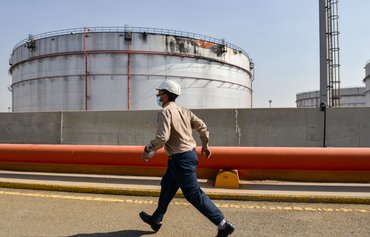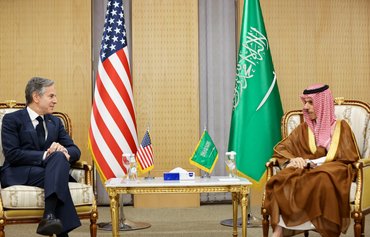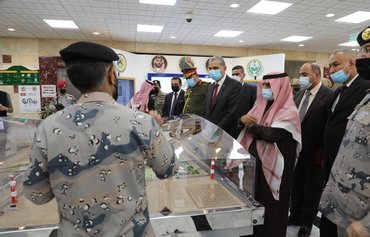Oil prices fell more than 1% Monday (September 30th) after Saudi Crown Prince Mohammed bin Salman said war with Iran would destroy the world economy and hinted instead at a non-military solution.
Washington, Riyadh, Berlin, London and Paris blame Iran for attacks that damaged the Saudi oil sector on September 14th and forced the world's largest crude exporter to sharply reduce production.
"In terms of geopolitical concerns, common sense is prevailing for now in Saudi Arabia," said analyst Naeem Aslam at traders ThinkMarkets, in reference to the crown prince's comments on CBS show "60 minutes", broadcast Sunday.
Mohammed bin Salman said a war would be catastrophic for global growth.
"Oil supplies will be disrupted and oil prices will jump to unimaginably high numbers that we have not seen in our lifetimes," the crown prince said.
"The region represents about 30% of the world's energy supplies, about 20% of global trade passages, about 4% of the world gross domestic product (GDP). Imagine all of these three things stop," he said.
"This means a total collapse of the global economy, and not just Saudi Arabia or the Middle East countries," he added.
Optimism despite setbacks
"Oil has been amazing everyone over the last couple of weeks, having surged on the back of the attack on the Saudi oil facilities before reversing the entirety of these gains," said Craig Erlam, senior market analyst at Oanda trading group.
"Traders are clearly not particularly concerned about risk premiums in oil," he said. "Instead, the focus again seems to be shifting back to the demand dynamics and the risk of further downgrades as the global economic slowdown takes hold."
Fitch Ratings on Monday downgraded Saudi Arabia's credit rating by one notch, citing "rising geopolitical and military tensions in the Gulf region".
Fitch acknowledged in its downgrade note that Aramco has demonstrated resilience to the attacks by quickly restoring or substituting the lost production, mainly due to building large spare output capacity.
But it also said "although oil production was restored fully by end-September, we believe that there is a risk of further attacks on Saudi Arabia, which could result in economic damage".
The agency said in a statement it had lowered Saudi Arabia's long-term foreign currency issuer rating from A-plus to A, with a stable outlook.
In a statement, the Saudi finance ministry criticised the downgrade, saying it did not reflect the kingdom's quick restoration of oil output after the attacks, and it urged Fitch to reverse its decision.
The September 14th attacks and aftermath instead "highlights Saudi Arabia’s outstanding capacity to effectively deal with adversities... (and) commitment to maintaining stability in the global oil markets", it said.
The Saudi statement said the kingdom has restored crude supplies to pre-attack levels and restored production capacity to 11.3 million barrels per day (bpd), with plans to reach full capacity of 12 million bpd in November.

![Saudi Arabia's Crown Prince Mohammed bin Salman attends a meeting with the US secretary of state in Jeddah on September 18th. [Mandel Ngan/POOL/AFP]](/cnmi_di/images/2019/10/01/20208-Saudi-crown-prince-600_384.jpg)






